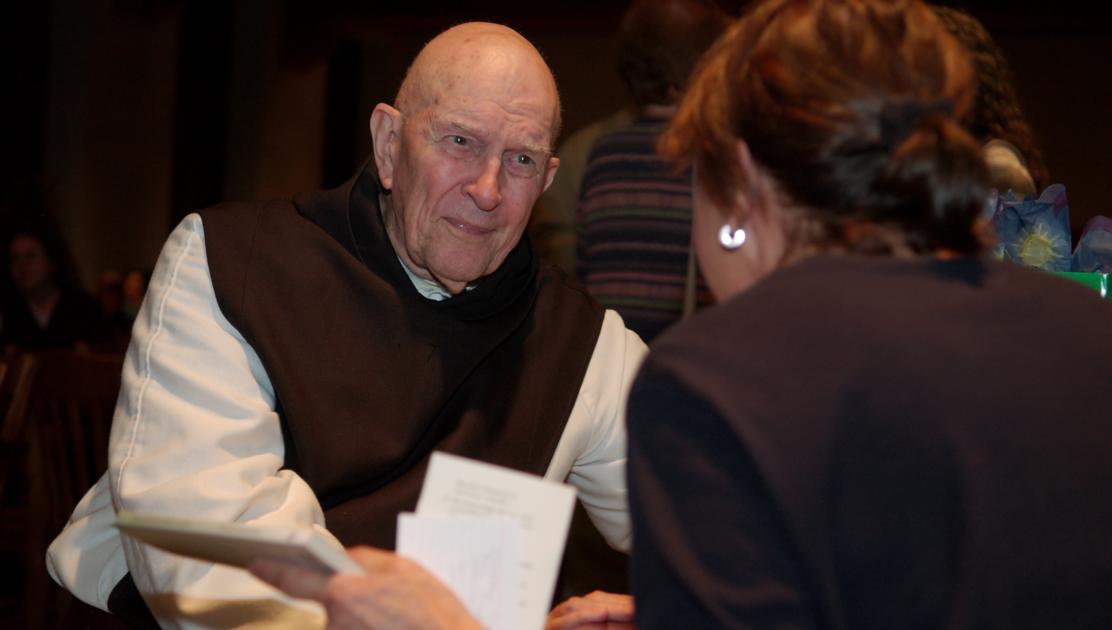Reflections on Father Thomas Keating
By John S. BennettWith the recent passing of Father Thomas Keating at age 95, Garrison Institute lost a great source of wisdom and a beloved friend. He was one of Garrison’s original three spiritual advisors, along with Gelek Rimpoche and Rabbi Zalman Schacter.
Father Thomas, or simply “Thomas” as he usually preferred, was many things. He became a Cistercian monk in 1944. In the 1950s, he was appointed superior of St. Benedict’s Monastery in Snowmass, Colorado, which he helped to build and run.
Later, he moved back to St. Joseph’s Abbey in Spencer, Massachusetts, where he served as abbot for 20 years. In the 1980s, he returned to St. Benedict’s Monastery, which became home for the rest of his life. He was the author of over two dozen books and a renowned speaker in great demand around the world—from Singapore to South Africa.
Father Thomas was best known for reconnecting Christianity to its contemplative roots. He co-founded the Centering Prayer movement and later the Contemplative Outreach organization as nondenominational opportunities for anyone to experience directly the divine presence that he recognized in all of us. Centering Prayer transcended individual religious doctrines to allow direct experiential access to what Father Thomas called the divine indwelling.
He taught that we will never find lasting happiness through striving after material objects and desires. Rather, authentic happiness arises in the contemplative dimension of life—its source lies in the personal experience of divine presence and love. He developed Centering Prayer as a silent means of cultivating the divine intimacy that transforms our hearts and minds.
Father Thomas became a major figure in interfaith relations, meeting frequently with leaders from other religions—including the Dalai Lama—and organizing multifaith dialogues with Jews, Muslims, Hindus, Buddhists, and Native Americans. Over time, many of these leaders became his good friends.
In a discussion once about reconciling opposing religious beliefs, Father Thomas was asked whether different and apparently conflicting “absolute truths” could be simultaneously true. He responded with a gentle smile and two characteristically simple words: “Of course.”
In a 1997 Harvard speech, Father Thomas told his audience “In the coming millennium, religious leaders and spiritual teachers might consider as their primary responsibility not so much to convert new followers…but to create communion: harmony, understanding, and respect for everyone in the human family, especially the members of other religions.”
For Thomas, the path toward inter-religious communion lay through silence and love. As he frequently reminded us, “Silence is God’s first language.”
Garrison Institute—and his many followers around the world—will miss Thomas’s gentle voice and deep wisdom.
John S. Bennett was the Garrison Institute’s first executive director.
